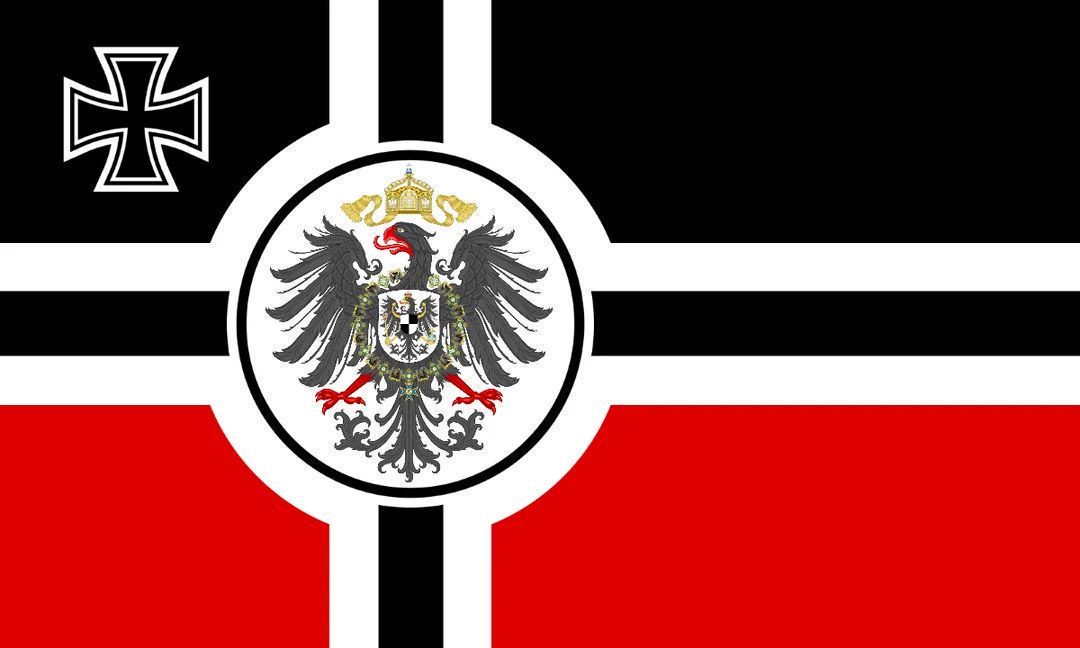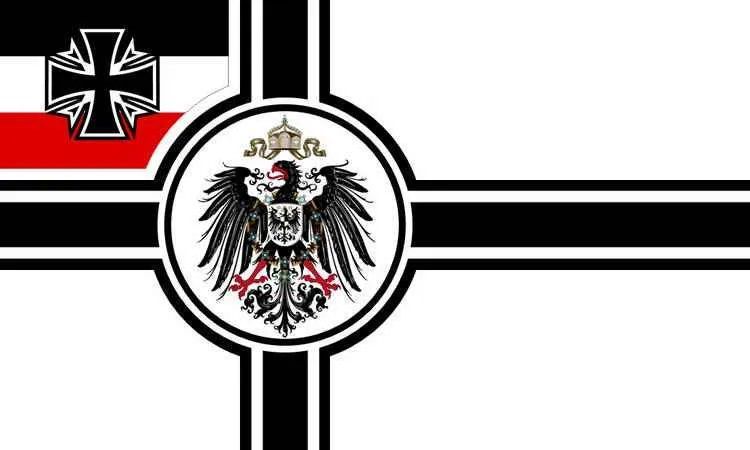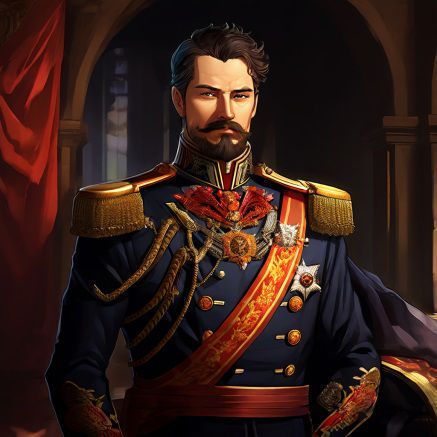German Empire
(A/N: This version of the German Empire belongs to Wattpad Author WWIIFanHistory. The same goes for its military arsenal.)
==========
Info: German Empire: The Reich of Conquest (Capitalist-Reformist Militaristic Imperialism)
History: Known for its advancements in industry and technology, the German Empire made significant contributions to the UN in terms of scientific research and development. Renowned for its achievements in science, engineering, and technology, it had a strong tradition of innovation and research, which led to breakthroughs in various industries. The expertise of the German Empire in engineering, manufacturing, and innovation strengthened the UN's technological capabilities and promoted advancements in various fields. The commitment of the German Empire to scientific research and technological innovation resulted in breakthroughs in engineering, medicine, and transportation. They provided expertise in areas such as industrial automation, renewable energy, and space exploration, pushing the boundaries of scientific progress. This expertise in technological innovation was utilized to drive progress and development within the United Nations.
With territories stretching from the heart of the German Empire itself, the Empire has expanded its territory and annexed countries from the South to the North of the European continent: Switzerland, the Kingdom of Belgium, the Kingdom of the Netherlands, the Kingdom of Denmark, and the Kingdom of Norway. This has created a united and unified system of kingdoms and states within the German Empire and its people.
In terms of the economy, the German Empire had a robust industrial base and a history of technological advancements. It had a well-developed manufacturing sector, particularly in areas such as machinery, chemicals, and automobile production. The empire possessed a highly efficient industrial sector characterized by organized production methods and a skilled workforce. Additionally, the empire had a highly skilled workforce and a strong tradition of engineering and innovation. Its emphasis on precision engineering and manufacturing processes resulted in increased productivity and quality. The economic strength of the empire facilitated innovation and provided resources for the UN's initiatives and projects. Its efficiency was valuable in optimizing production systems and global resource utilization.
Notably, the German Empire had a long-standing tradition of a strong military. It prioritized discipline, strategic thinking, and technological advancements in its armed forces. This militaristic nature translated into a commitment to maintaining a well-trained and well-equipped military, which contributed to the UN's defense capabilities and peacekeeping operations. The empire's military strength was reflected in its emphasis on discipline, hierarchy, and strategic planning, prioritizing efficiency and effectiveness. The Wehrmacht served as a formidable asset within the United Nations, sharing military tactics, training programs, and advanced weaponry with other member nations.
Additionally, the German Empire and its military, the Wehrmacht, are considered the strongest nation and the first powerhouse – above the Russian Empire and Empire of Japan, armed with high and advanced weapons, possessed numerous tactical nuclear warheads and WMDs.
The German Empire's education has maintained its strong emphasis on rigorous technical and engineering education, focused on efficiency and precision. Reforms have been made to incorporate more diverse perspectives and encourage critical thinking skills, while still preserving a strong focus on science, mathematics, and applied research. The education system is highly organized and centralized, with a focus on producing skilled professionals to serve the needs of the state and industry.
Within the society, the German Empire has seen the gradual expansion of voting rights and the growing influence of an industrialized middle class, although the traditional Prussian aristocracy and military elite continue to wield significant power. Efforts have been made to address regional inequalities and tensions between the German heartland and the diverse ethnic minorities within the empire, although challenges remain in fostering a cohesive national identity.
The German Empire maintains a strong emphasis on its distinct Prussian/German cultural identity, celebrating its rich literary tradition, classical music, and technological innovations. The arts and sciences are highly esteemed, with state support for universities, museums, and cultural institutions. While the culture remains predominantly Germanic, there is also a gradual integration of diverse regional and minority influences, as the empire seeks to balance unity and diversity.
The ideology of the German Empire, centered around nationalism, authoritarianism, militarism, a desire for imperial expansion, and the pursuit of a strong centralized state, continued to shape its perspectives, policies, and decision-making processes within the United Nations. While the UN operates as a single world government, these ideologies influenced the empire's approach to governance and policymaking.
And hence, the German Empire earned the name "Reich of Conquest", emphasizing Germany's historical pursuit of territorial expansion and militaristic ambitions. It highlights their desire for conquest and dominance in international affairs. However, what made the German Empire unique was the ruling parties of the Reichstag and Bundesrat: the German National People's Party (DNVP) - a national conservative and right-wing party comprising predominantly the Junkers, a noble landowning class, as well as conservatives, nationalists, monarchists, militarists, statists, and capitalists; the Social Democratic Party of Germany (SPD) - a center-left social-democratic political party that encompassed various socialist, Marxist, and social democratic ideologies; and the Socialist Republican Party of Germany (SRPD) - a left-wing party that resonated with German workers, socialists, and the general populace, with ideologies including authoritarianism, social anarchism, socialism, statism, republicanism, and Marxism.
With the three ruling parties in the Kaiserreich's Reichstag and Bundesrat - a Junkers-led national conservative right-wing party, a center-left social democratic party, and a left-wing party - Calina Ilyich Lenin couldn't help but remark and call the German Empire's characteristic imperialism "Capitalist-Reformist Militaristic Imperialism." This term highlights the close connection between capitalism, militarism, social democracy, and socialism in the German Empire, suggesting that the empire's imperialism was driven by the interests of capitalist elites and militarists who sought to expand their economic power through military means, while the socialist and social democratic parties in the ruling coalition pursued a reformist approach to imperialism in an attempt to hold their imperialistic ambitions and keep them in check.
Symbol/Flag:

Battle Flag:

Motto: "Gott mit uns" (God is with us)
Military: Imperial German Army (IGA)
Military Branches:
Heer (Army)
Kriegsmarine (Navy)
Luftwaffe (Air Force)
Panzer-Mecha-Korps (Tank Mecha Corps)
Schutztruppe (Colonial troops)
Abteilung III b (Counterintelligence)
Leaders: Kaiser and Chancellor
Kaiser: Friedrich IV

Chancellor: Prince Leopold von Hohenzollern

Bạn đang đọc truyện trên: AzTruyen.Top